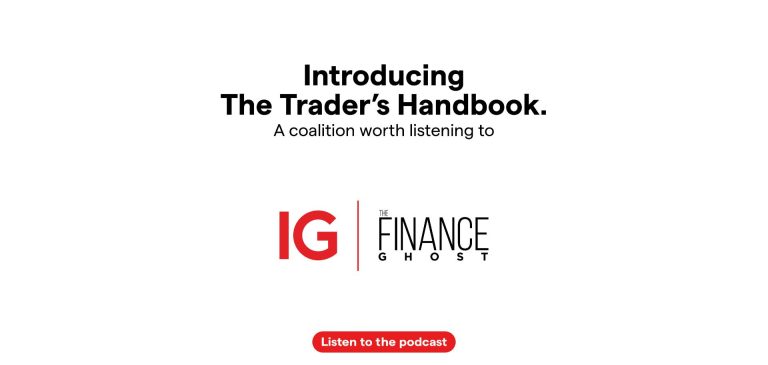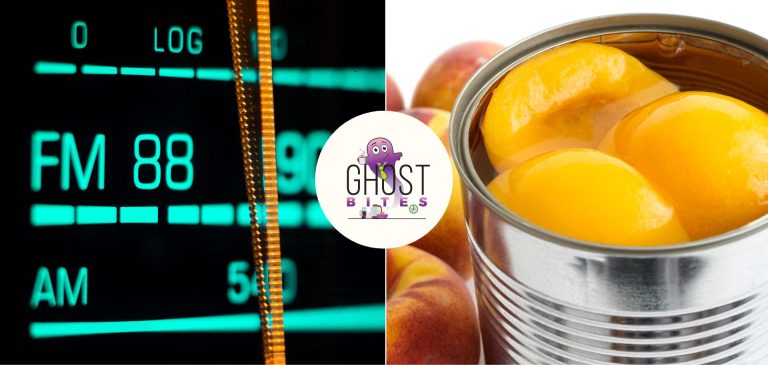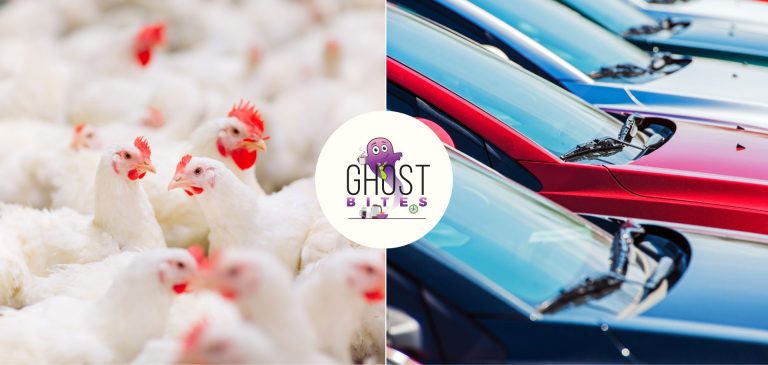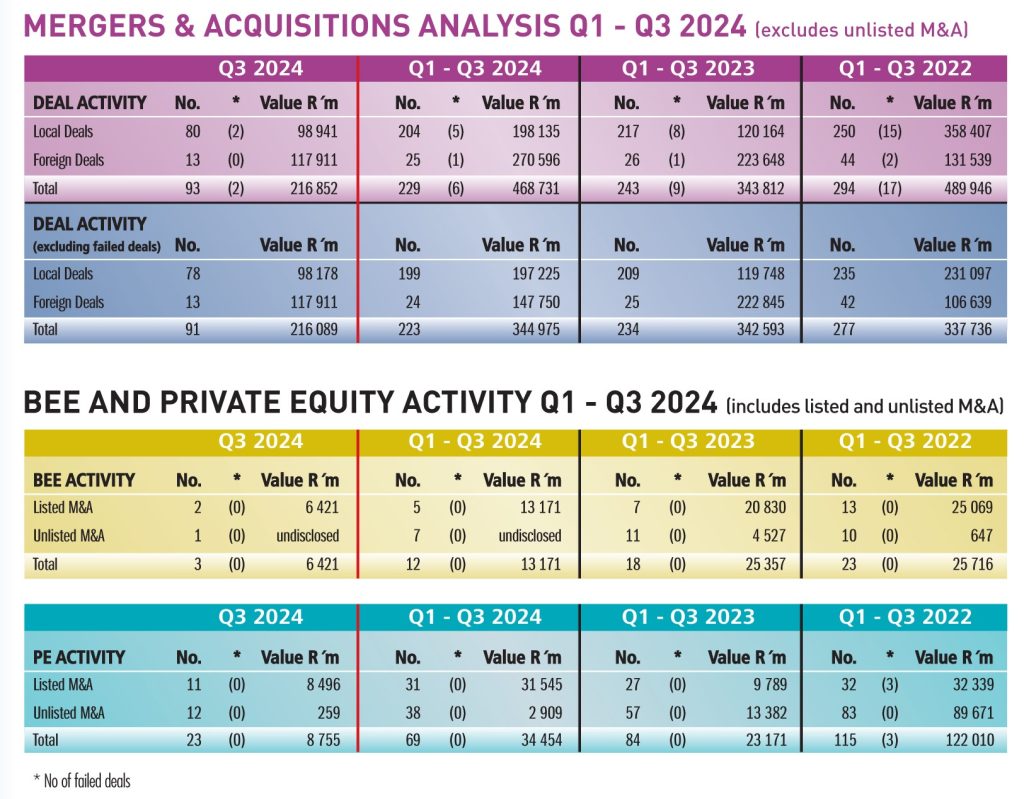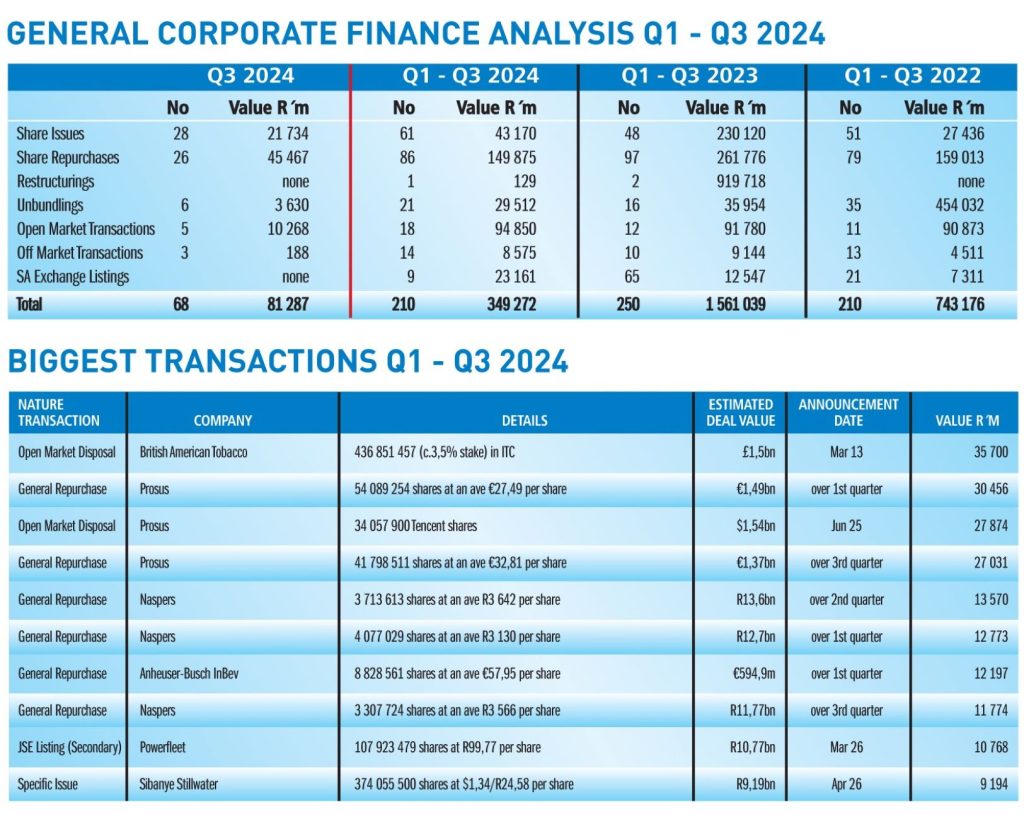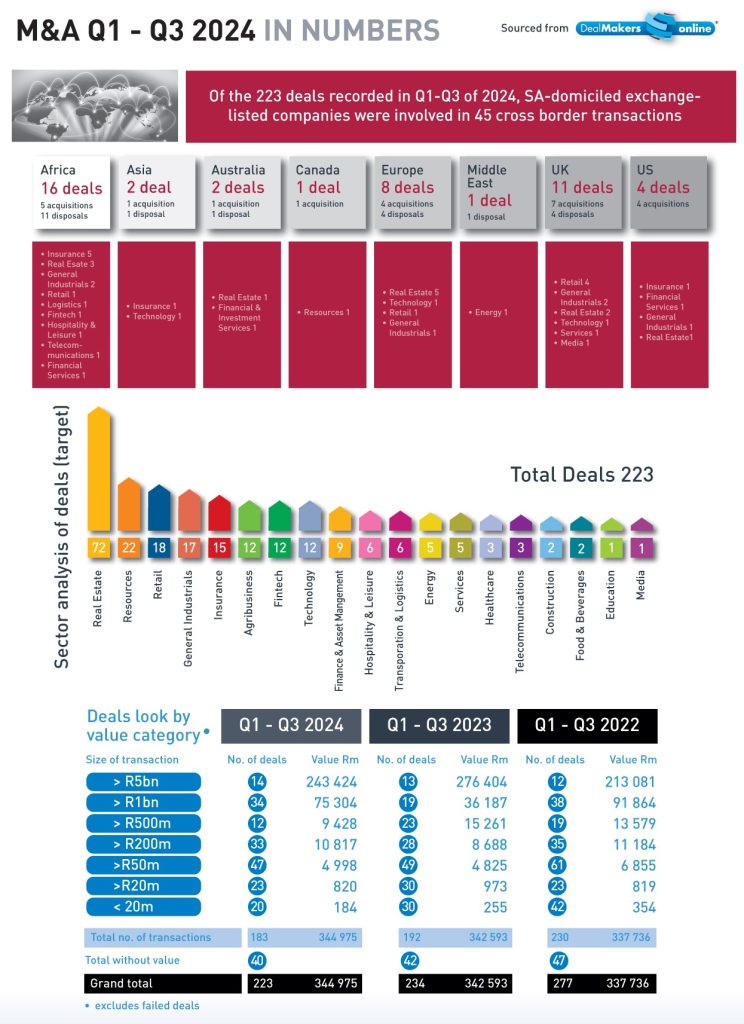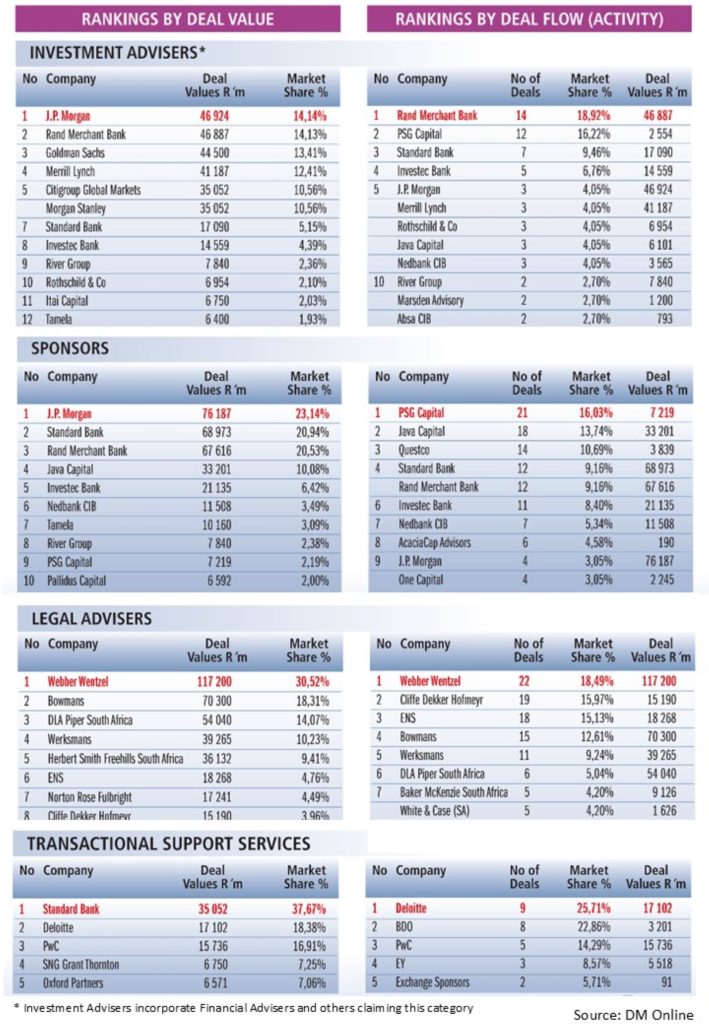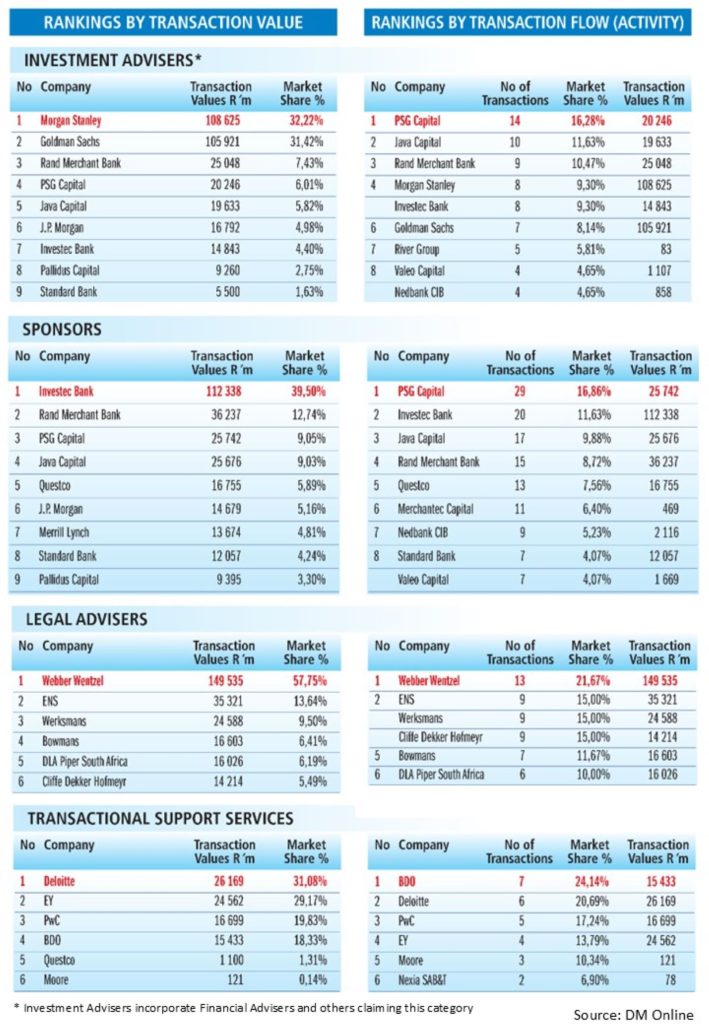In this episode of The Trader’s Handbook, Shaun Murison from IG Markets South Africa joined me to dive into the value of demo accounts for traders. A demo account provides a risk-free environment, allowing you to practice, learn, and test strategies without the pressure of real money on the line.
We discussed how to approach your demo account with discipline, treating it as if it were real money. Expect to experience losses, but understand that they’re part of the learning process – not a barrier to success. By being realistic about your demo experience, you can better prepare yourself for live trading.
Tune in to discover how demo accounts can be your first step toward becoming a confident, successful trader.
Listen to the episode below and enjoy the full transcript for reference purposes:

Transcript
The Finance Ghost: Welcome to episode 11 of The Trader’s Handbook. What a wonderful season it’s been, a great few months of making this podcast about trading and just helping people make that journey from investing to trading. That’s very much the way we’ve couched it, especially for someone like me who historically has focused very much on investing, pretty much only on equities.
It’s been great to actually learn about this world of trading and not just equities – and that’s been the theme of the last couple of shows, actually. We’ve touched on forex, we’ve touched on commodities, we did an index trading show, so there really has been a lot to learn.
These shows are evergreen, so I would certainly encourage you to go back and listen to them. They’re all about trading the asset class, not specific ideas that are relevant for a short while and then go away.
Today we’re going to do something that is perhaps the most important show of all, actually, which is the importance of having a demo account, something that IG offers. They allow you to get used to the platform and play around before you actually put your own money in there. And that is very much the focus of today: why is this important? Why is it so useful for people who want to make this journey into trading? And what do you actually get in your demo account?
As usual, I am joined by Shaun Murison of IG. Shaun, thank you so much for making time for this, heading towards the end of the year at time of recording, it’s mid-November, just off the back of US elections. It’s been a very busy time in the markets and that’s of course exciting for traders and that’s why we do what we do here. We want to lift the lid on the importance of demo accounts. Thank you for making time in what’s been a pretty busy time in the markets.
Shaun Murison: Great, great to be here again.
The Finance Ghost: I think this demo account is quite a big deal. I think it’s a big part of what IG offers, it’s certainly the first thing I did was go and open up a demo account, of course, as part of this podcast series. I’m very aware that a number of listeners have very much done the same. They’re playing around on the platform, they’re seeing what works. We’ve promoted it right since the start of the podcast series and it just very much aligns with the approach that you guys take, the approach that I take, which is to just help people do this in a risk-mitigated fashion.
There’s no attempt made here to say, hey, this isn’t a risky thing to do. In fact, it’s been quite the opposite. I think we stress the risks almost more than we highlight the opportunities sometimes!
Do you find that people go this route, do they go and start out with a demo account? Do they follow that advice? Or do people just dive straight in and fund an account and see what happens?
Shaun Murison: A lot of people will start off conservatively, but it really does depend on the level of experience of the user. For someone that’s starting out in trading, it’s a great product.
You have accessibility to live market prices. They are generally the guys like yourself want to see what trading is all about. They go, they open up a demo account, they press some buttons.
Then obviously you have a more experienced trader who might jump straight into a live account and then run that demo account concurrently, because you can have a live account with a demo account. You don’t even have to fund that live account to open up a live account. It’s only when you actually want to move into the real world where you need to fund that account.
Demo accounts do form a big part of traders, experienced and not experienced, moving through that learning curve. Sometimes people just want to test strategies, maybe they’ve got some ideas of how they want to trade the markets and they want to test that in what we call paper trading environments, a non-real environment.
Lots of benefits to having that practice account. Like you said correctly, it’s learning about trading without actually having to take the risk of trading with real money.
The Finance Ghost: Monopoly money, as I like to call it. A little throwback to one of my favourite games when I was a kid, certainly the board game of choice for my family. So yeah, that’s actually great. I hadn’t thought about them running concurrently, but it makes a world of sense. You can get confident in one of the asset classes or strategies and then start to trade that with real money and then continue to experiment in your demo account with your paper money or Monopoly money as I like to call it. So that’s a really clever strategy. Actually, I really hadn’t thought of that at all. And it’s just another benefit of these demo accounts, right?
Shaun Murison: Exactly.
The Finance Ghost: So when accounts are being opened with IG, I know there is quite an important vetting process that you actually go through with new clients. This is something we’ve discussed offline as well before. You do put in a lot of effort to make sure that people who are opening accounts should be opening accounts, bluntly, just because it’s a leveraged product and you can lose money quite quickly and without really understanding what happened to you if you don’t know what you’re doing – and sometimes even if you do know what you’re doing!
So this vetting process is really important, right? And is that only for funded accounts, or is it for demo accounts as well? Do you allow people to open a demo and then go through the big process when it’s time to put real money in?
Shaun Murison: Yeah, so anybody that wants to open a demo account can open a demo account. They can do it via mobile device or on the website. Anyone that is interested in trading does have access to a demo account.
When you start looking at a live account, obviously there’s a suitability of product and so we do a basic sort of questionnaire when you’re opening a live account in terms of. We’ve adopted it from the UK, it’s called a MiFID scoring system. It looks at wealth and experience because obviously you’re dealing with credit and like we said, it is a high risk environment. Just making sure that people aren’t taking their hard earned pensions and putting it into this type of trading environment, or if someone’s unemployed and maybe doesn’t have the finances to start trading.
Because remember, trading should form part of a portfolio. It’s the high-risk side of that portfolio. High-risk, high-reward though. Obviously there’s a lot of opportunity with it, but you’re not searching for yield for your retirement. So we think it’s an ethical practice on that and all about suitability.
The Finance Ghost: Yeah, it makes a world of sense. I can imagine the temptation, someone gets a hot tip or they don’t really have experience with this stuff, or there’s a bit of desperation that has crept into their lives for whatever reason. And this stuff happens. It absolutely happens out there. And it’s really great that you have the guardrails to stop it from happening because it’s not a lottery ticket. You can go and buy that R10 lottery ticket or whatever the lottery costs these days, I actually have no idea, and potentially win millions and the most you can lose is the amount you put into the lottery ticket. That’s not how the markets work. Yes, there’s strong upside, but it’s not like that. It’s not the R10 ticket that can win you millions. That’s not how it works.
Shaun Murison: Exactly. And that’s the whole point of the demo account. So it’s to recognize and provide the tools for a trader to actually develop their skills and once they feel like their skills have developed enough, they can move into that live environment. I think that’s a steady and a logical approach to getting involved.
The Finance Ghost: So that actually brings me very neatly to the next question I wanted to ask you, which is around the functionality on a demo account, those tools that you speak of. Because from what I’ve seen of the demo account that I opened, it seems like it’s pretty much the whole platform that you can get access to. You can really see how it all works, all the different instruments, all the different asset classes. Local, even offshore – that’s baked in there as well. Is that an accurate statement that a demo account is literally just a normal account minus real money in terms of functionality?
Shaun Murison: Yeah, so that’s exactly it. You are getting access to live market pricing, you’re getting access to fundamental data, those technical analysis tools. Because obviously we talked a lot about technical analysis, live market news feeds, we even have functions like client sentiment. Data shows you how traders are placed in any particular market. So maybe they’re trading Sasol shares, for example. You can see how many traders are of the view that they expect the price to rise and how many expect the price to fall. Things like your signals, everything is there except the real money. It’s Monopoly money and you’d obviously need to treat it as such. There’s not the emotion of real money, but there is the accessibility to information, a democratisation of information and you have access to that whole suite of tools, yeah.
The Finance Ghost: So let’s talk about some of the emotional side of it, as you’ve referenced there because obviously losing real money stings much worse than in a demo account. But I think people are also smart enough to think: this could have been my money. Or alternatively, when they have a great trade to also go: wow, I wish this was my money. It’s almost a bit like playing golf, that toxic relationship that I have with that sport where you go and hit that one great drive or that one great approach shot or that one lucky putt that keeps you coming back for more, never mind the others that went into the trees or worse.
It’s a little bit like that with trading, I guess, it certainly can be. And emotionally, I imagine that does cause a lot of people to perhaps lose heart at the demo stage. They just see a trade go really badly and they think, wow, I don’t know if this is actually for me, maybe it’s time to kind of quit before I even begin.
What would your advice be to someone who has had that really difficult experience in the market at demo account stage to get them to kind of see that there’s more to it than that, that there’s a lot to learn and there’s a lot of opportunity and one bad trade doesn’t make your whole story?
Shaun Murison: I would say that if you’re looking at trading, what is the goal of your trading? Is it to supplement an income? Now, if that’s your goal, you should treat it as a business and know that in any type of business, you have your income and your expenses. I think psychologically we can react quite badly to taking a loss in the market and think, oh, we’ve performed poorly, and then obviously be quite euphoric to when we’ve done well.
But if you start removing the negativity, so know that you’re not going to get it right every time, but you will take losses and view that it as if this is a type of business and a way to supplement income, maybe refer to a loss as one of your expenses, sort of a barrier towards making a profit. But if you look at it in a business sense like that, you can remove the negativity of the idea of loss.
That demo environment is there, like we said earlier on, just to help improve that skill set if you just keep working at it, take your time. I experience it slightly different though, I have to be honest. I think quite often when you look at the demo environment, you’ll see someone will take a loss and say, I wasn’t concentrating, I wasn’t paying proper attention. And then when they do well, they, they maybe get a bit of that euphoria and say, oh, this is actually quite easy, maybe I should move to a live environment. But be realistic about your demo experience. Treat it like it’s a real account and just build that skill set. And then hopefully when you move into a live environment, you know, you can carry this skill set through and make a bit of money.
The Finance Ghost: Interesting. Okay. Because I mean normally you talk about people being risk averse, that’s how we understand people to be and generally hate taking a loss and it almost ruins some of the profits for them. It sounds like the experience that you’re having with a lot of clients is almost a bit different to that. They’re actually so excited about when the things go well that they are happy to stomach some losses along the way.
I guess that is more the mindset you need. You need to be optimistic about what you can achieve. I guess you’ve also got to be quite careful to manage the euphoria that you don’t start just chasing trades for the sake of it. It almost becomes like your next hit on a drug. It can become quite dangerous and it can lead you to make some pretty rough decisions.
In investing, I guess, in your portfolio, it happens to me sometimes. I’ll look and say, okay, across all these positions, there’s always going to be a couple that really didn’t turn out the way you hope. And then it’s, it’s very irritating. You kind of look at that and go, you know, if I put this money in the bank, I would be up 7% or 8% in the past year, instead I’m 20% in the red. But that’s when you have to remember it’s a portfolio. Across the whole portfolio, how have you done? You can’t pick out the one or two individual positions that went badly and then say, oh look, this is a terrible idea, why did I do this etc.
I really like your analogy of treating trading as a business. There will be good years, there will be some bad years, there will be some expenses along the way, there’ll be some excellent months. As a business owner myself, I guess it resonates particularly well. But that’s a good way to think about it because otherwise you just attach too much to the losses and you don’t see them as part of the journey. They’re almost a necessary evil. You can’t have all the profits without having some bad trades along the way, because otherwise there’s no risk. And if there’s no risk, there would have been no reward in the first place.
Shaun Murison: Right, exactly. And learn through that process, what am I doing well? What am I doing poorly? How could I improve? Use it as a continual improvement process. Learn where your weaknesses are and then work on those, If you have a problem getting out of a trade, maybe you’re emotional when it’s going against you, maybe you want to hang on, you realise: well, maybe I only prepared to risk this amount of money and I was going to stop, use my stop loss here. But instead what you do is you pull it and you wait for the market to recover. No, if you’ve identified a weakness, for example, as not being able to take a loss or actually implement the loss that you had prescribed to the trade, then use an automated function like IG’s automated stop loss. We can put it in the system. Automate the process if that’s a weakness of yours.
That’s just a small example of developing that skill set, knowing it’s not just about pressing buttons, knowing how you react emotionally to different market scenarios, whether favourable or unfavourable.
The Finance Ghost: Yeah, that’s great advice. The emotional side of this is huge, actually. And again, that leads me very nicely into the next thing I wanted to ask you, which is what your approach would be or what you would generally recommend – and it’s obviously very generic thinking here, it’s not per person – just in terms of how long a demo account should probably be used for?
You’ve talked there about using it concurrently with a live account to keep testing new things. I’m not really asking about that. It’s more, you open a demo account, you start trading an index, and now you’re ready to move into doing it with real money. I guess it’s a bit of a balancing act because if you do it too quickly, you probably haven’t learned enough and you might have some really bad trades that actually sting you. But I guess if you do it for too long in a demo environment, it’s also a little bit easy to become desensitised to the outcome. The bad trade, as you say, it’s, oh, don’t worry about it, it was just a journey along the way. That’s a lot easier with fake money than with real money, right?
Shaun Murison: Yeah. I think the goal, when you are trading with that, is firstly to prove to yourself that you can develop some form of consistency in trading, that you can take regular profits out of the market and you learn how to control your risk. As soon as you start looking at those, then you can start thinking about progressing to live account. Now, when you do move to a live account, I think the next thought process there is you’re going to be tested with emotions, because now all of a sudden you have that emotion attached to real money.
Watching your real bank balance going up or going down, depending on how well you’re doing, maybe you’ve got a good strategy, but in that live environment, do you have the discipline to follow that strategy and to implement your risk protection measures? To take profits at the right time? To let winners run when they need to be maximised?
Develop consistency in your skill set. Once you’ve developed that type of consistency in a demo environment, move it into a real environment and in that real environment then see how the trading goes, when you have real emotion attached.
The Finance Ghost: Yeah, I love it. That’s really good thinking. I think let’s move on from that. And just as a passing or last comment rather about demo accounts, just go open one, go check it out. If you’ve been listening this far into the season and you haven’t yet opened a demo account, then it really is time go and check it out. If you’ve landed on this show as your first one, just go and get it open and then go listen to all the other shows in the series because it just makes it so much more real. It’s very important to actually see the stuff on your screen and make some of the mistakes. It’s easy to think, oh, I have experience in the market, I’m not going to make mistakes like this.
One of the silliest ones I did in the demo account was that pairs trade, where I didn’t check that both instruments were available before I put the trade on. It was two stocks, because again, I just can’t help myself coming at it from a stocks perspective. It is my background, single stocks, and I didn’t check that both were available. One is not liquid enough for CFDs and so one was available, one is not. But by then I’d put on one leg of the trade and it’s such a silly thing to do, but it’s a mistake that you kind of need to make in order to look back and say, oh, now how did I get that so wrong? Rather do that in a demo account than in a real account, definitely. So go and get it done.
I think, Shaun, let’s move on to the technical side of the show. As we’ve done for the past few shows, we end off with some techs and as always, I have a bit of a look through the excellent IG Markets Academy to see what grabs my eye. In this case, it was an article about break-outs and fake-outs. I haven’t actually seen the fake-out terminology before, so I actually really enjoyed that. I know what a break-out is. It feels like something that you maybe look back on and kind of point out, hey, that was a break-out or that was a fake-out. It’s less predictive, it’s more did the stock actually hold that break or did it kind of go back into the range it was in?
Rather than a double top, for example, which is a predictive pattern. And by the way, if you want to see an amazing double top, go and check out the Richemont share price from 2024, in case you’re listening to this later. Shaun, I think I sent it to you on WhatsApp the other day. It is quite a spectacular double top.
Before I get too distracted by that, let’s go back to break-outs and fake-outs. It’s not a predictive tool, is it? It’s really just a way to describe what happened on a chart?
Shaun Murison: So when you talk about break-outs, we talk about a movement in price and it’s generally when it takes out a key level. It could be a trigger for an entry into a market because that’s where we think the market is showing a new commitment to a direction, whether it be up or down. A break-out is something can be applied to chart patterns, although it’s just confirming a chart pattern.
We’ve talked about head and shoulders, double tops, we talked about a neckline or a key level of support and resistance. A break-out is just a confirmation of that pattern as that price moves below that psychological level and commits to a new direction or re-establishes the previous directional move. Now when we start talking about a fake-out, it’s really saying, oh, this break-out didn’t actually work the way we wanted to, but there are other technical tools that you can use to try and help validate those signals. Break-out is just the price moving above or below a key level in the market, suggesting a new directional move.
The Finance Ghost: “Dead cat bounce” is another term that gets thrown around, right? So that’s a stock that’s been in a declining trend, it suddenly breaks higher, and the question is: is it a dead cat bounce? An awful description for people who like cats, like us, but it is what it is. We’ll just have to go with it. Is it a cat that’s just bouncing the last couple of times before it meets a very untimely end? I think that’s the awful origin of the story. I try not to research any further or ask any further questions because I don’t want to know the answer.
But that would be an example of a fake-out, essentially, right? It’s coming out of that trend, but it actually isn’t. It then gets back into that declining trend and away it goes.
Shaun Murison: Look, markets don’t move in a straight direction. So when you talk about it, the proverbial dead cat bounce – let’s say the market’s tanked, the market’s fallen, like really, really aggressively, but it doesn’t fall in a straight line. It might have broken out in direction, given a bit of relief in the opposite direction before it continues in that preceding direction. So, yeah, slightly different to break-outs, but it could be applied. It’s just a term. Is the market changing direction now or is it just a dead cat bounce? So when we see a dead cat bounce, if it does turn out to be that, it means that, no, it’s not changing direction, it’s actually going to continue in the same direction.
The Finance Ghost: So, Shaun, last question for this show. It’s a little bit around technicals as well, but also just trading tools, as you mentioned earlier, you can use other tools like volumes alongside price action.
That’s quite an important thing, right? A price can move, especially on a very illiquid stock, 20% on weak volumes. Then you’ve got to be super careful how you interpret that. It’s a bit different on an index, for example, you’re not going to have such a silly move on no volumes. But I think it still matters to see the extent of volumes behind a price movement.
Maybe that helps with figuring out whether a break-out is real or a fake-out? My understanding is the more volume you have behind a specific move, the more you can trust that move, the more you can believe that maybe it’s real, because more people were pushing it that way. Is that a decent summary of how you would use volumes?
Shaun Murison: Yes, I think in other but still similar words, when you look at a break-out, if you reference a break-out, if we see high volume when the price breaks a certain level, it’s alluding to the sustainability of a move. There’s a lot more momentum, there’s a lot more activity pushing the market in that direction, so if we see high volume on a break-out, we would assume that there’s more sustainability in the market continuing in that direction of the break-out.
If we see low volume on that, it might be seen as having less credibility, less support for that directional move. So maybe it’s not sustainable and maybe we could end up with that fake-out scenario.
The Finance Ghost: Perfect. Thank you. I think that brings us to a close for this week. We only have a couple of shows left for this season. For those listening to this basically as it comes out, they’ll be done and dusted before the December break, so lots and lots of content to sink your teeth into.
We really hope that this has helped with getting you out there and giving you that confidence to go and open up a demo account and maybe even move into a funded account if you feel like it’s the right thing for you. So do join us for the last couple of episodes of the series and then of course, we really welcome your feedback. What do you wish we had talked about? What would you like us to cover? What did you enjoy? What did you go back and listen to again?
Thank you for being here, for giving us your time, especially at this time of year as things start to wind down. Shaun, thank you so much. And we will do another one of these soon.
Shaun Murison: Great. Thank you.

